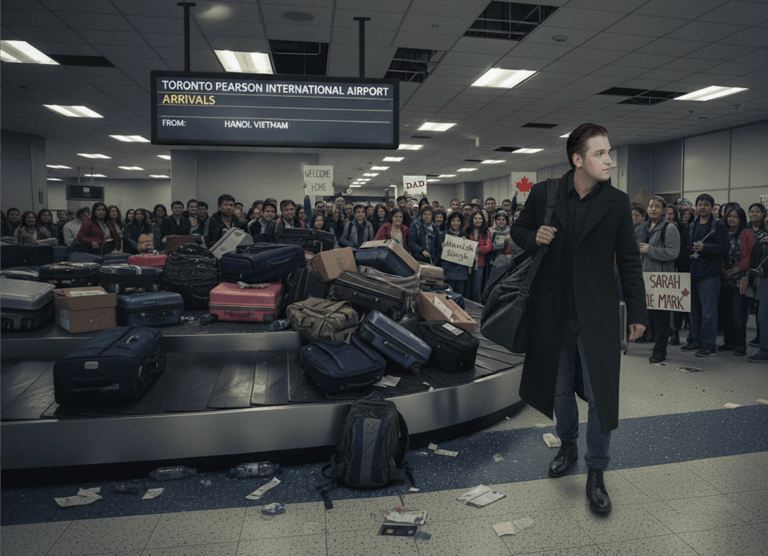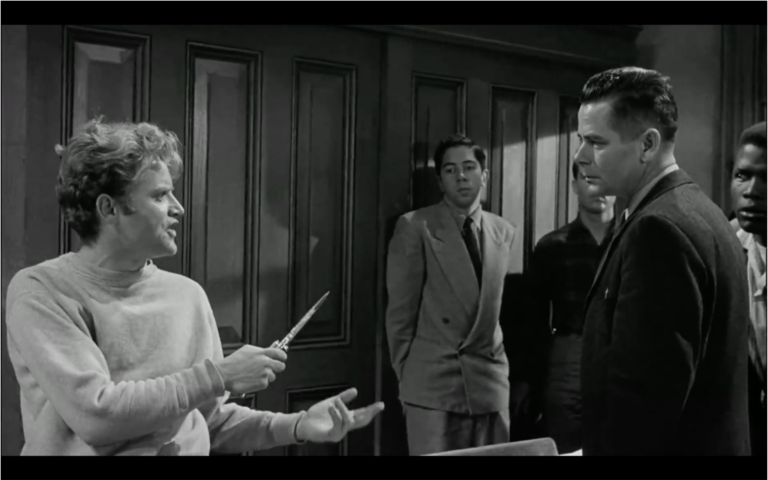I’m a Canadian expatriate, returning home after more than a decade living and working in Asia. I’m bringing my wife, our young daughter and a gnawing sense of unease about the country waiting for us. Every time I open the news, it seems like Canada is falling apart at the seams. Crime, drugs, decay and disorder are no longer confined to Vancouver’s Downtown Eastside, parts of Toronto or a few rougher blocks in Edmonton and Winnipeg; they’ve been metastasizing into hundreds of once-safe communities across the country. Immigration is at historic highs, but housing is at historic lows. Unemployment is rising and per capita GDP is shrinking. The streets feel meaner, the public discourse more brittle, the sense of shared future increasingly thin.
And yet, amid the chaos, Canada’s dominant narrative remains curiously unshaken. The media, universities, cultural institutions and the political establishment continue to speak as if social progress is inevitable, multiculturalism is a settled virtue and any dissent from progressive orthodoxy is bigotry or ignorance. Even as the lived reality for ordinary Canadians grows harsher, the official story of Canada holds firm.

That’s what worries me most. I’m coming back not just to a country in evident material decline, but to a country unable to name its decline. A country that no longer remembers how to speak the language of limits, virtue or order. Like many younger voters, I backed Pierre Poilievre last year not only because he promised to fix the economy, but because I hoped – quietly, perhaps foolishly – that he would name what was wrong with the country. That he would tell a different story.
He didn’t. Not fully, at least. And in failing to do so, he joined a long line of Conservative leaders who have won occasional elections but lost the deeper, more decisive battle: the struggle for the soul of the nation.
The Thesis of a Century’s Loss
The failure of Poilievre to capitalize sufficiently on the floundering Liberal government – not merely on Justin Trudeau’s personal unpopularity, but on the Liberals’ very “offer” to Canadians – isn’t just a quirk of bad campaign strategy or a missed media moment. It’s the latest symptom of an older disease.
Conservatives once understood the broader terrain of the nation’s narrative, institutions and moral authority. No longer. For more than half a century, Canada’s conservative movement has focused narrowly on economics while surrendering on culture. Conservative leaders have been largely content to balance budgets while so-called “progressives” (speaking of naming: leftists and neo-Marxists) rewrote the nation’s founding myths. Conservatives won some of the votes but lost nearly all of the institutions. They passed tax reforms while losing schools and campuses, news media, courts, even the big corporations – and most of all the public imagination.
This is not a new pattern. The seeds were sown as early as the First World War, when the Conservative Party under Robert Borden presided over the Conscription Crisis, fracturing the country along linguistic and cultural lines. The breach with Quebec was never repaired, and for generations afterward, the Liberals would dominate as the only party seen as capable of speaking for both French and English Canada.
Later came the Prairie Populist John Diefenbaker, whose soaring rhetoric about “One Canada” couldn’t withstand the rising Liberal tide. Then Pierre Trudeau’s Charter of Rights and Freedoms, multiculturalism and a progressive, rights-based moral order. In the later 1980s, Progressive Conservative Brian Mulroney delivered many economic reforms, including free trade with the United States, but left untouched the deeper machinery of Canadian culture, allowing the left’s grip on the CBC, universities and public education to tighten unchecked.
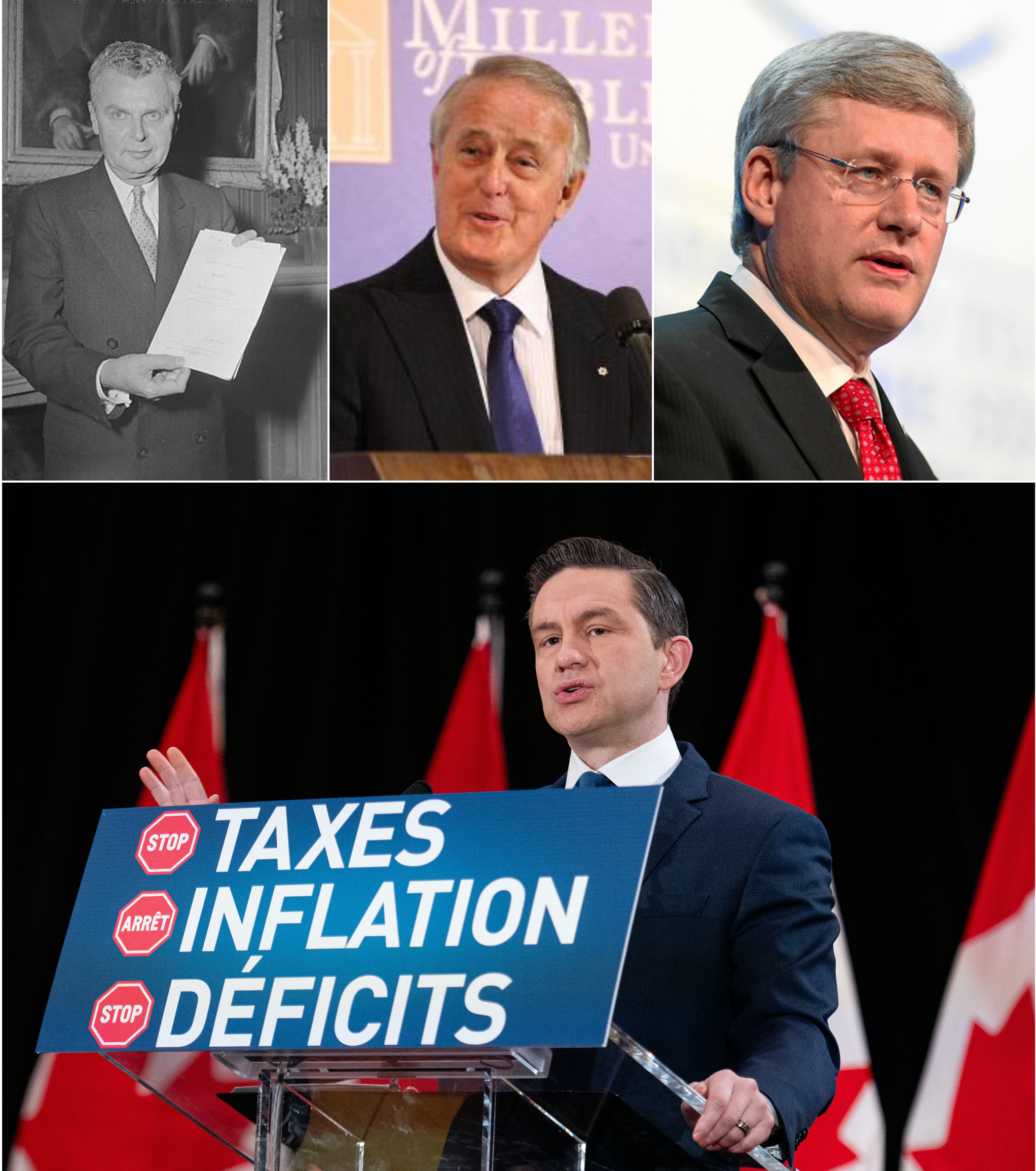
Even in the 1990s and 2000s, when the Reform Party briefly attempted a cultural fight, and Stephen Harper went on to win a Conservative majority, Canadian conservatism retreated from confrontation. Harper’s incrementalism (initially a necessity due to the Conservatives’ minority government) avoided cultural flashpoints, as if a minority psychology had taken hold. The CBC’s budget remained intact or even swelled. Progressive ideology in schools and bureaucracies advanced without challenge, setting the stage for the calamity of DEI and wokism.
Each era of “conservatism” won elections but ceded more in the culture. Each new leader promised renewal but fought only at the edges of policy, never at the level of meaning. The result is a Canada where conservative ideas are tolerated as economic preferences (and occasional structural/constitutional suggestions) but excluded as moral claims.
Each generation of Conservatives told themselves they could make peace with these cultural shifts. Mulroney apparently thought free trade would secure prosperity no matter who controlled the media. Harper acted as if he believed fiscal management and security policy were enough to govern around the cultural rot.
And so when Poilievre ran on freedom from inflation, freedom from red tape, freedom from government interference, it struck many Canadians like a blast of fresh northern air. But the freedom he offered remained largely economic, not freedom for anything deeper. Missing from his message was engagement with the issues that animate the cultural imagination: immigration and national identity, the spread of radical identity politics through schools and institutions, and the trials of Tamara Lich and the truckers, for millions of Canadians the flagbearers of resistance to state overreach. In bypassing these touchstones of moral and cultural concern, Poilievre’s campaign failed to inspire a vision that could counter the progressive narrative dominance.
If conservatives restrict their fight to economic terrain while avoiding cultural and moral ground, they will keep winning occasional battles but losing the war.
Why did Pierre Poilievre lose?
The Conservative Party of Canada, led by Pierre Poilievre, lost Canada’s 2025 federal election not due to a single tactical mistake but because Poilievre failed to offer a compelling cultural or moral vision for the country. While his platform promised economic freedom and resonated with disillusioned young voters, it avoided the cultural issues that many conservatives feel are central to the country’s decline. He could have challenged the cultural orthodoxies that have hollowed out Canadian life: the cult of victimhood, the religion of identity, the fetishization of “diversity” without duty or unity. Instead, he chose economic grievance as his vehicle and failed to inspire a movement strong enough to overcome the entrenched progressive narrative.
The Long March: A History of Cultural Retreat
The pattern of conservative retreat didn’t happen overnight. It’s the result of what the left has long understood and the right has long ignored: that politics follows or is “downstream” of culture, not the other way around, an idea popularized by Andrew Breitbart, the late conservative media entrepreneur who founded Breitbart News and helped shape the modern populist right.
While conservatives balanced budgets, progressives marched through the institutions. The universities that once taught history, literature and philosophy as pillars of Western civilization became sites for deconstructing the very idea of Western civilization, something I would experience directly in graduate school at an elite Canadian university. Public broadcasting transformed from nation-building to narrative management. Even primary schools shifted, replacing citizenship and civic virtue with “inclusion” and identity politics.

Each generation of Conservatives told themselves they could make peace with these cultural shifts. Mulroney apparently thought free trade would secure prosperity no matter who controlled the media. Harper acted as if he believed fiscal management and security policy were enough to govern around the cultural rot. Even Poilievre, for all his rhetorical skill, sought to harness economic discontent while barely touching the sacred cows of diversity, multiculturalism or radical progressivism.
But culture isn’t a side dish. It’s the main course. It’s where the deepest assumptions of a society are formed. And if conservatives refuse to challenge the left’s cultural monopoly – on the grounds that it’s too risky, too polarizing or too hard to explain to voters – they cede the very ground from which policy, law and public opinion emerge.
The result is that every conservative victory in Canada has been temporary. A correction, not a course change. An interlude, not an intervention. Even the victories feel defensive, tentative, apologetic, managing decline rather than reversing it. This failure of imagination has made Canadian conservatism small. Small in vision. Small in scope. Small in spirit. A movement content to tinker while the country’s moral architecture was razed and rebuilt under our noses.
And the left never stopped building. They understood something conservatives didn’t: win the schools, win the screens, win the songs – and you win the next generation’s soul.
What Poilievre Promised
Poilievre was an apparently new kind of politician – at least for Canada – a youthful national leader who combined in one package serious grounding in conservative ideas and policy, operational cunning within party and Parliament, and a remarkable understanding of current communications technology and social media, allowing him to bypass anti-conservative legacy news media and appeal directly to the younger demographics that, to nearly everyone’s surprise, proved the ones most receptive to his bluntly delivered message. It began to appear that Poilievre might be not just an electoral but a generational opportunity.
His campaign for the Conservative leadership following the 2021 election debacle (the third defeat in six years) and his subsequent performance as Opposition Leader electrified many young voters, especially those disillusioned by ever-worsening housing costs, declining services and a sense that opportunity was slipping away – or being pulled beyond their grasp. His promise of “freedom” resonated because millions of Canadians felt trapped: by debt, by bureaucracy, by an elite that seemed increasingly indifferent to their struggles.
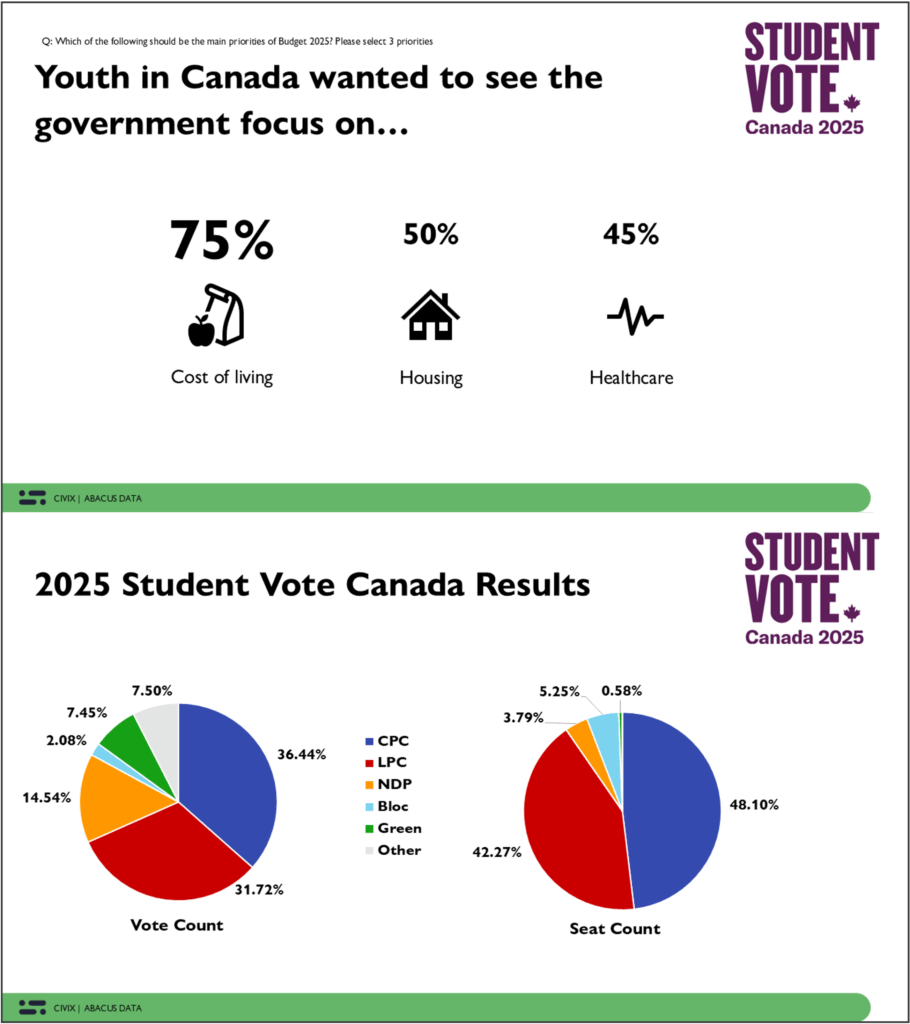
But “freedom from” can’t sustain a movement’s momentum without a corresponding “freedom for”. Poilievre offered freedom from inflation, from gatekeepers, from overreach. But freedom for what? He seemingly left that question unanswered; if he did answer it, it reached far too few ears.
And into that silence flowed the left’s answer: freedom to self-define, freedom to deconstruct, freedom to “be your authentic self” without limit or shared purpose, all while striding the progressive road towards “social justice” and “sustainability”. In the absence of a competing moral vision, Poilievre’s freedom sounded procedural. Economic. Instrumental. Lacking weight, lacking self-sacrifice, lacking destiny. This is why, despite his skill at communication, his clever attacks, his ability to connect on economic frustrations, his campaign never quite reached the heights it promised. He offered policies without a narrative, relief without renewal, critique without culture.
He was fighting on the left’s terrain: accepting their framing of what freedom, progress and justice mean, while trying to run a better-managed version of their machine. But a managed decline is still decline. Until conservatism in Canada learns to offer a counter-narrative – a vision of what it means to be Canadian that transcends the economic – it will continue to win policy arguments but lose the public imagination.
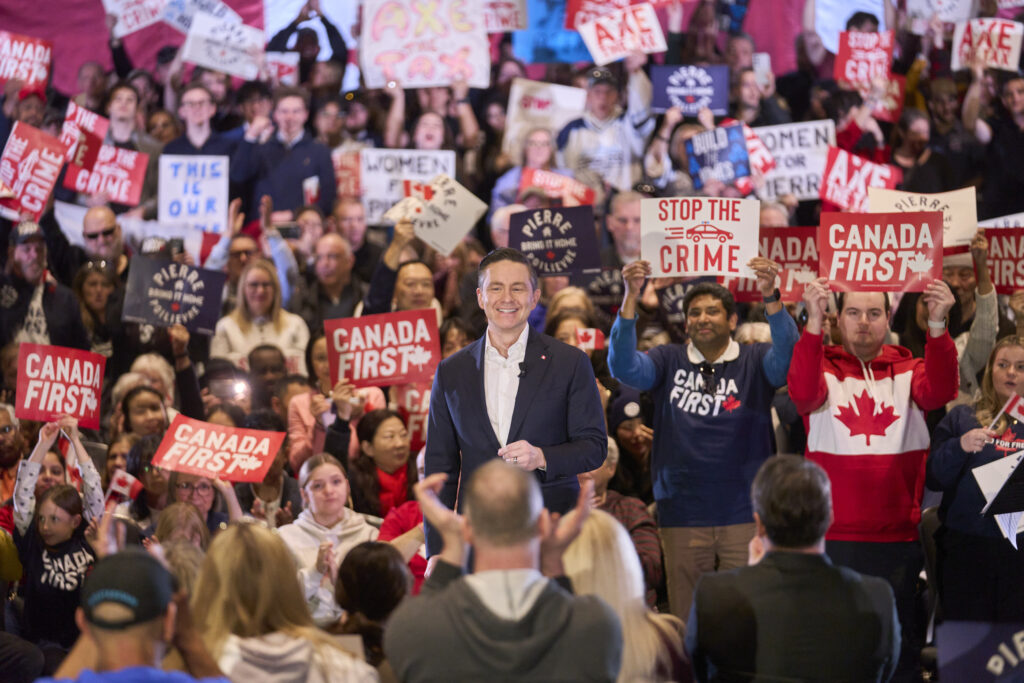
Poilievre could have been the leader to begin that pivot. Though at-times criticized for being too blunt (as with his call several years ago to fire the Bank of Canada’s bumbling governor), even contemptuous – and, yes, “Trumpian” – the path to victory demanded taking greater risks, and doing so sooner. Instead, he pulled his punches.
Though hard to discern at the time, it became a pattern of behaviour suggesting a curious ambivalence about driving his point home, going all-in on his strategy. Hindsight makes clear that it was not a new thing, beginning at least last summer during B.C.’s remarkable election campaign, when Poilievre hesitated for weeks before officially endorsing the improbably surging Conservatives under John Rustad. Given the achingly close result – with no more than a few dozen votes here or a few hundred there deciding critical constituencies – a convincing and timely declaration of unequivocal federal Conservative support might well have put B.C.’s Conservatives over top. Though the lapse was noted at the time, it was more indicative than many of us realized.
Courage, the Cultural Fight and the Podcasting Bros
It’s fashionable in some conservative circles to dismiss “culture war” as unserious, a distraction from economic policy or constitutional governance. But history shows otherwise. Nations are stories we tell ourselves; lose control of the story, and you lose the nation. The left knows this. That’s why they fight for the schools, the corporate HR departments, the broadcasters, the arts councils, the film boards, and not just for the bureaucracy or unions. They know that while budgets come and go, and governments rise and fall, cultural institutions shape how people see themselves – and what they expect from their leaders.
And so when Poilievre ran on freedom from inflation, freedom from red tape, freedom from government interference, it struck many Canadians like a blast of fresh northern air. But the freedom he offered remained largely economic, not freedom for anything deeper. Missing from his message was engagement with the issues that animate the cultural imagination: immigration and national identity, the spread of radical identity politics through schools and institutions, and the trials of Tamara Lich and the truckers, for millions of Canadians the flagbearers of resistance to state overreach. In bypassing these touchstones of moral and cultural concern, Poilievre’s campaign failed to inspire a vision that could counter the progressive narrative dominance.
If conservatives restrict their fight to economic terrain while avoiding cultural and moral ground, they will keep winning occasional battles but losing the war.
What was missing from the Pierre Poilievre platform in the 2025 federal election?
The Long March: A History of Cultural Retreat
The pattern of conservative retreat didn’t happen overnight. It’s the result of what the left has long understood and the right has long ignored: that politics follows or is “downstream” of culture, not the other way around, an idea popularized by Andrew Breitbart, the late conservative media entrepreneur who founded Breitbart News and helped shape the modern populist right.
Poilievre’s missed opportunity wasn’t primarily tactical. It was civilizational. He could have challenged the cultural orthodoxies that have hollowed out Canadian life: the cult of victimhood, the religion of identity, the fetishization of ‘diversity’ without duty or unity. Instead, he chose economic grievance as his vehicle.
Canadian conservatives have spent decades mostly avoiding this fight. They feared being called intolerant, backward or mean-spirited (indeed, they deliberately pushed those who did want to engage on these levels to the margins). They let progressives set the moral horizon while positioning themselves as reluctant managers of “inevitable” social change. But cultural surrender is not moral humility. It’s abdication. And the result is a Canada increasingly unrecognizable to those who still believe in constitutionally grounded liberty, family, faith, community and national coherence.
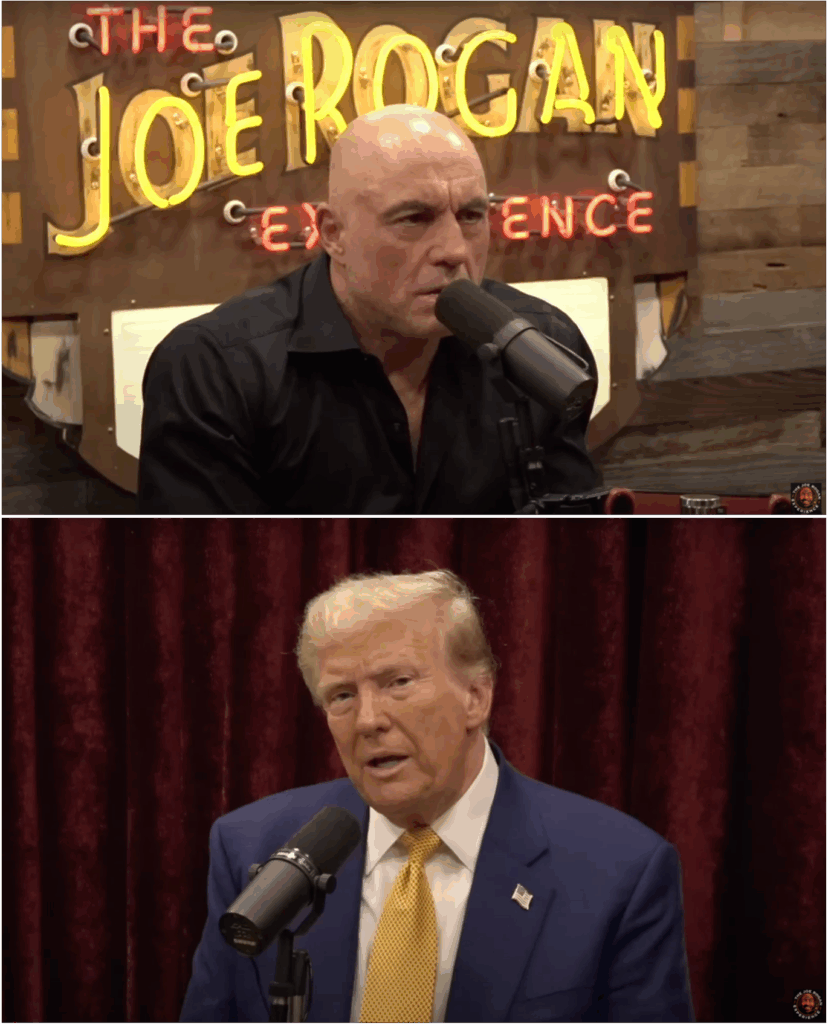
Poilievre’s missed opportunity wasn’t primarily tactical. It was civilizational. He could have challenged the cultural orthodoxies that have hollowed out Canadian life: the cult of victimhood, the religion of identity, the fetishization of “diversity” without duty or unity. Instead, he chose economic grievance as his vehicle, leaving the deeper structures untouched.
Although Poilievre is to be commended for not walking into the fatal trap of reorienting his campaign entirely towards anti-Trumpism (as Ontario Premier Doug Ford and his chief of staff unctuously demanded), and even more for his iron self-discipline and grace under pressure as he increasingly realized that victory would not be his, his habit of caution can’t be overlooked. Even his leaders’ debate performance was tepid; instead of verbally dismembering Carney, he and his war room failed to come up with even one devastating put-down. Probably worst of all, for still unexplained reasons the purported master of the digital space, the erstwhile purveyor of bravely blunt messages, rebuffed opportunities to be heard by millions.
Just last week, news broke that Poilievre had turned down Joe Rogan, the world’s most famous podcaster, for a full-length interview in mid-campaign. Rogan sounded puzzled more than disappointed. His nearly three-hour-long podcast with Donald Trump late in the Presidential campaign was viewed 38 million times in three days. Though no doubt worrying he’d again be lambasted as too much like Trump, Poilievre was losing the election anyway and, besides, could have used this opportunity to further distance himself from Trump as well as Carney. Instead, he went on two long-form Canadian podcasts (viewable here and here) that garnered about 650,000 views between them. Nothing against them, but it wasn’t an either/or choice.
I had heard grumblings of the Rogan debacle weeks ago, as a number of U.S. and UK podcasters and alternative media contacted me personally to ask why Poilievre was being so selective. Some of them naïvely felt that, being a Canadian, I could just text my fellow citizen Poilievre and make arrangements. So it wasn’t just Rogan, but a series of missed opportunities. Patrick Bet-David, a host at Valuetainment, encapsulated the frustration in this episode, saying that international new media provided a golden opportunity for Poilievre “to bypass the media cartel that exists in Canada” and at the same time “get the eyes of the world on the issues of Canada.” It was surely worth a shot; as in B.C. last fall, numerous ridings in the April 28 federal election were decided by anywhere from a few hundred to a couple of thousand votes.
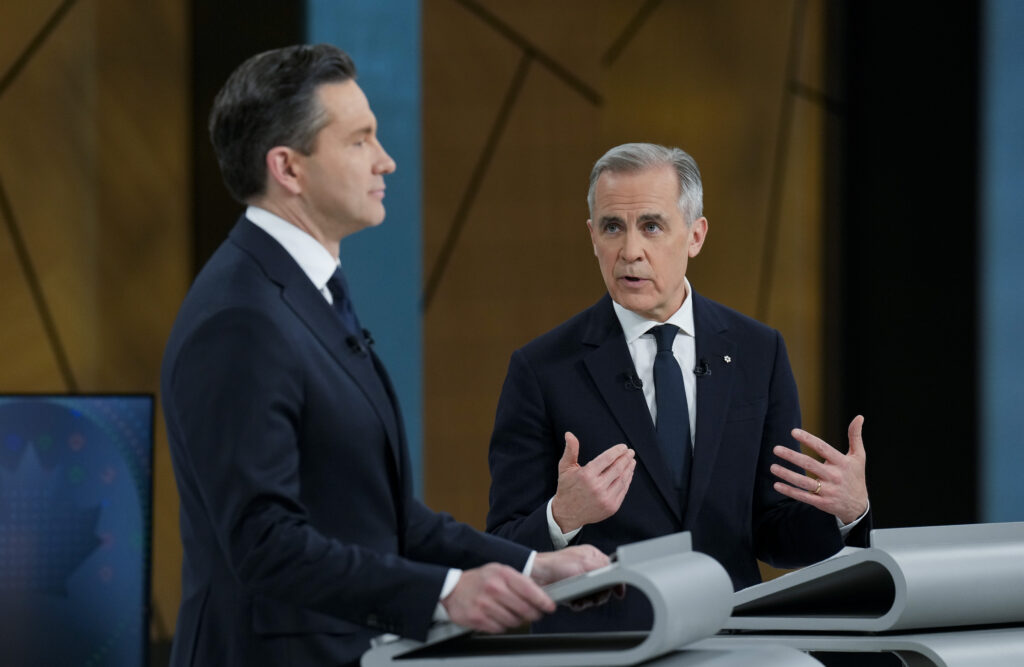
In taking his road, Poilievre reassured his enemies that nothing fundamental would be challenged, even if he won. It also undermined arguably Poilievre’s foremost asset: his aura of authenticity, built around his reputation for brutal frankness and a willingness to take decisive action. And voters sensed the slippage; at least, enough potential new voters to deny Conservatives the election victory they had worked so hard for. As the election neared, one noticed more and more comments that Poilievre was “just another politician”.
Toward a Conservative Renewal
Not every twist and turn in an election campaign results directly from “big ideas”. At some point, practical politics take over and, in this case, tactical decisions had an impact. Poilievre did go hard in the criminal justice area – if not exactly a cultural issue, certainly not an economic one, either – promising an array of reforms to get much tougher on criminals and protect law-abiding Canadians. But he did so mainly in the campaign’s last week, after a record 8 million voters had already cast early ballots. And while the polling needle in those final days began inching in the Conservatives’ direction, none of those early Liberal voters who might have felt twinges of buyers’ remorse could take back their vote.
And the Conservatives’ results were still impressive in several respects: MPs in nine provinces, the highest vote share (41.3 percent) since 1988, higher than Harper’s majority, and more Ontario votes than Premier Doug Ford scored in his recent provincial re-election victory. Despite the overwhelming, sickening tidal wave of (largely concocted) fear over Trump, that wave crested for Carney short of a majority government, and then only thanks to the collapse of the NDP, while the Conservatives gained dozens of seats in their own right. All while battling unrelenting bias from the traditional news media (all of them now government-subsidized).
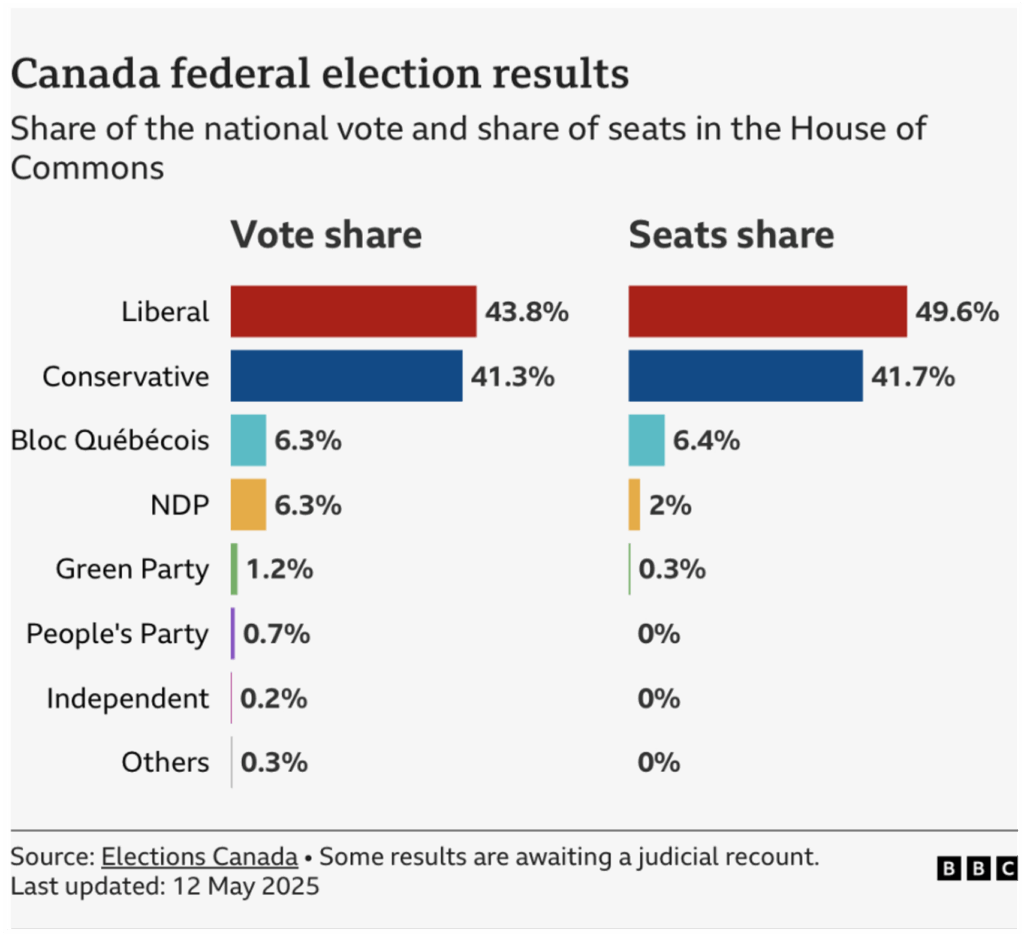
Still, Conservatives did lose.
If conservatism is to reclaim its centrality in Canada, it must think bigger. It must move from management to meaning. From policy tweaks to philosophical clarity. From transactional appeals to transformational purpose. That begins by recovering what conservatism is for – not merely what it is against.
Conservatism is for rootedness: in family, place, history, faith. It is for order that makes freedom possible, hierarchy that makes excellence possible, community that makes belonging possible. It is for honouring the past not as a burden but as an inheritance. For seeing liberty not as licence but as responsibility. For seeing equality not as sameness but as dignity founded upon common humanity.
Conservatives don’t need to mimic progressive radicalism. But they do need courage. Courage to name what’s broken. Courage to say ‘no’ to corrosive dogmas. Courage to recover the moral sources of Canadian identity.
Such a conservatism would challenge the dehumanizing bureaucracies, the hollow corporate progressivism, the cultural nihilism dressed up as liberation. It would offer young Canadians not just escape from debt but a story worth building their lives around.
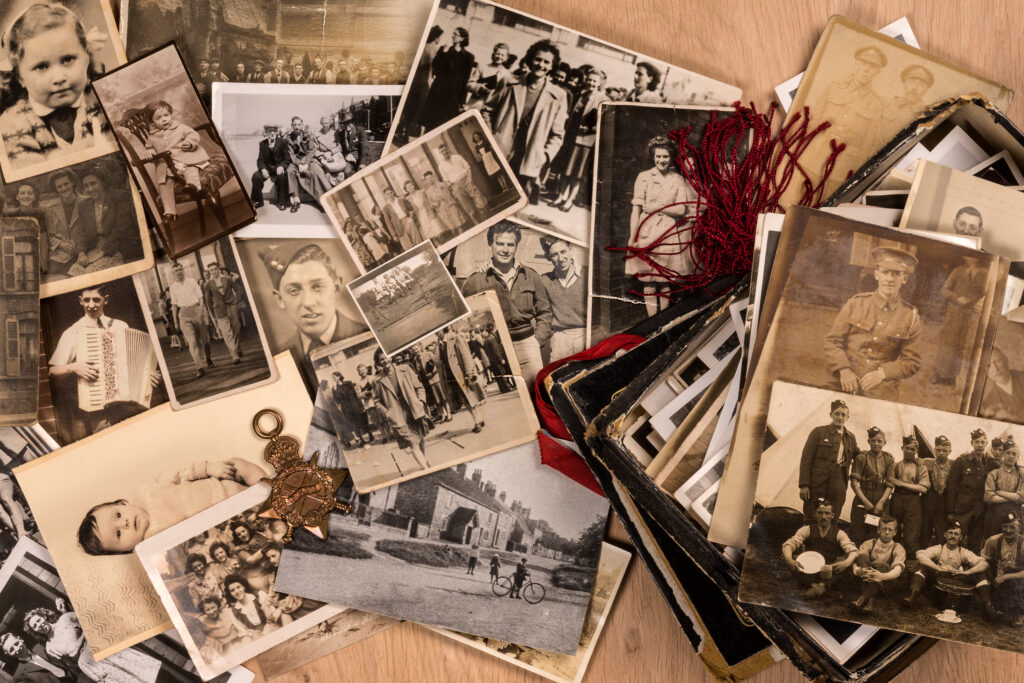
Pierre Poilievre’s instincts hinted at this. His fight against gatekeepers wasn’t just economic, it touched a deep frustration at closed doors, rigged systems, lost aspirations. But he never widened that fight into a cultural critique, never named the ideologies upstream of those gatekeepers, never offered a competing moral vision. Conservatives don’t need to mimic progressive radicalism. But they do need courage. Courage to name what’s broken. Courage to say “no” to corrosive dogmas. Courage to recover the moral sources of Canadian identity.
Without that courage, they will keep winning debates and losing the future.
A restored Canada will require a revived and fully capable, fully formed, fully engaged Conservative Party. Hopefully one with enough appeal to win the next federal election. But at minimum, one present enough to offer a compelling alternative to the Liberals and the even farther-left parties. Time to get to work.
What does a complete election analysis suggest about way forward for Conservatives?
The Conservative Party of Canada needs to think bigger, and move from policy tweaks to philosophical clarity, from transactional appeals to transformational purpose. It needs to be clear not just about what it’s against but what it is for. Conservatism is for rootedness: in family, place, history, faith. It is for order that makes freedom possible, hierarchy that makes excellence possible, community that makes belonging possible. It is for honouring the past not as a burden but as an inheritance. For seeing liberty not as licence but as responsibility.
Such a conservatism would challenge the dehumanizing bureaucracies, the hollow corporate progressivism, the cultural nihilism currently dressed up as liberation. Pierre Poilievre’s instincts in the 2025 election campaign hinted at this. His fight against gatekeepers wasn’t just economic, it touched a deep frustration at closed doors, rigged systems, lost aspirations. But he never widened that fight into a cultural critique, never named the ideologies upstream of those gatekeepers, never offered a competing moral vision.
Brock Eldon is Associate Editor at C2C Journal. Since earning his B.A. from Western University and M.A. from Queen’s University in London and Kingston, Ontario, he has taught and designed secondary and post-secondary English curricula in Canada, South Korea, China and Vietnam. His literary criticism can be found here and his short fiction can be found here.
Source of main image: Shutterstock.




